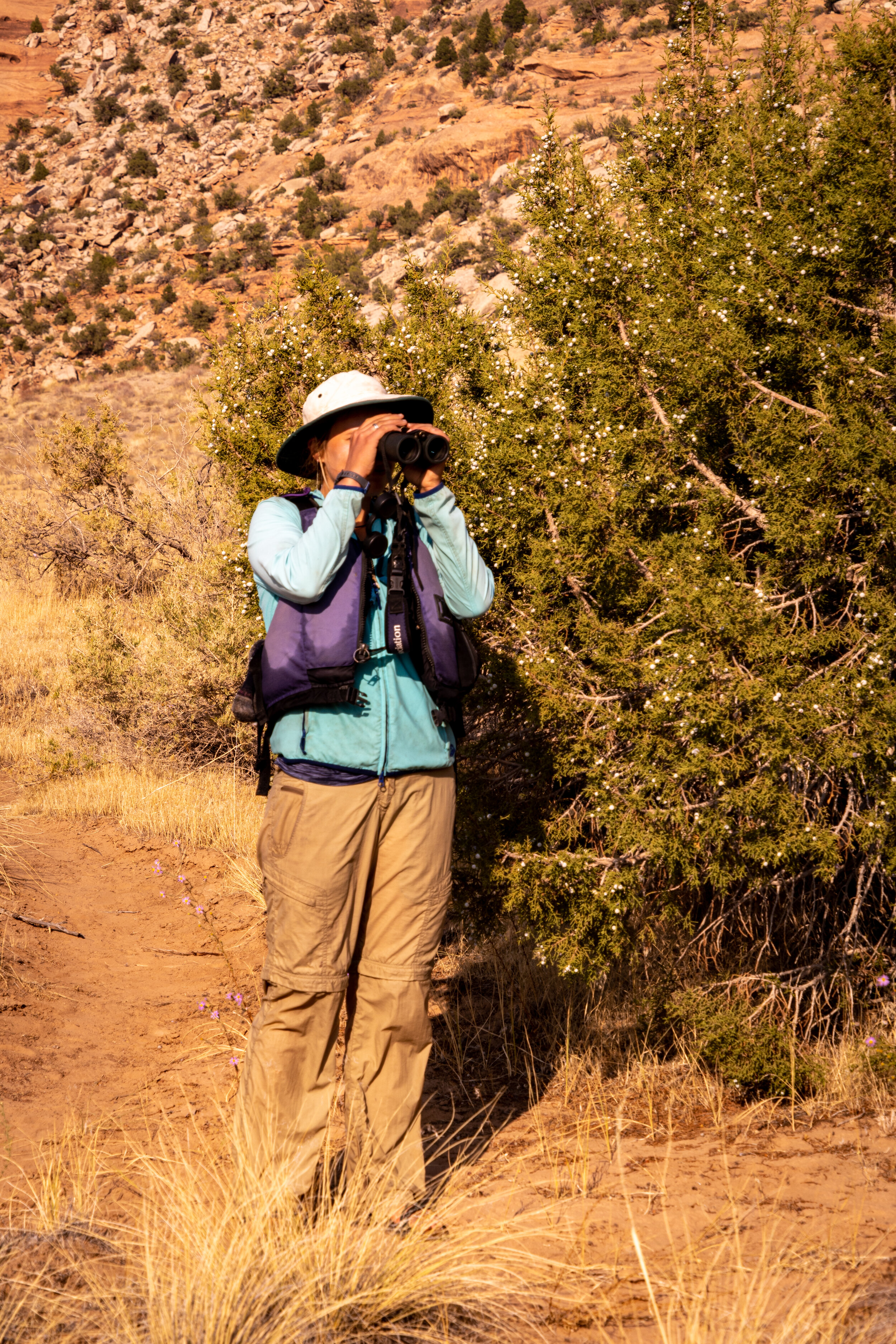
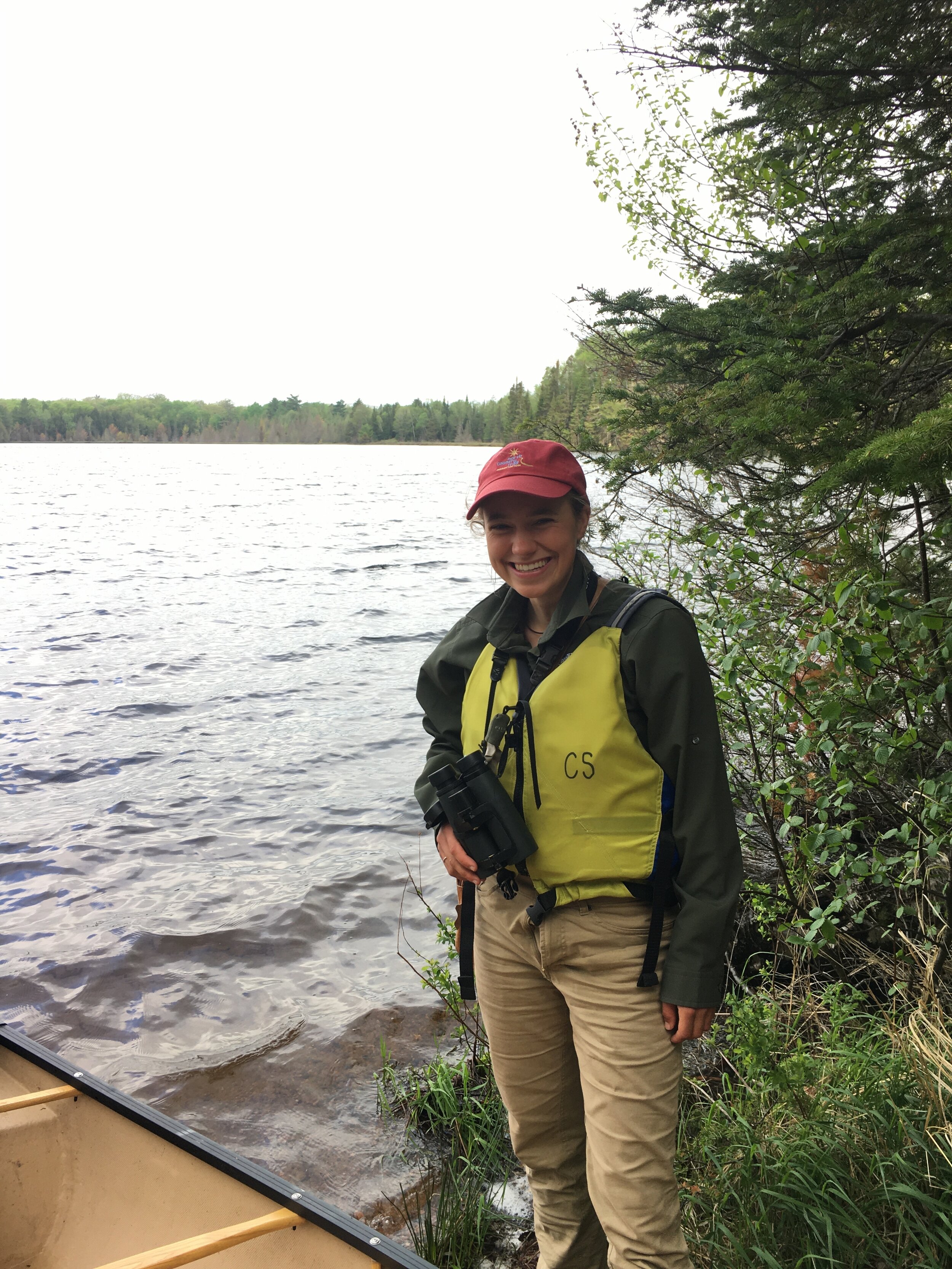
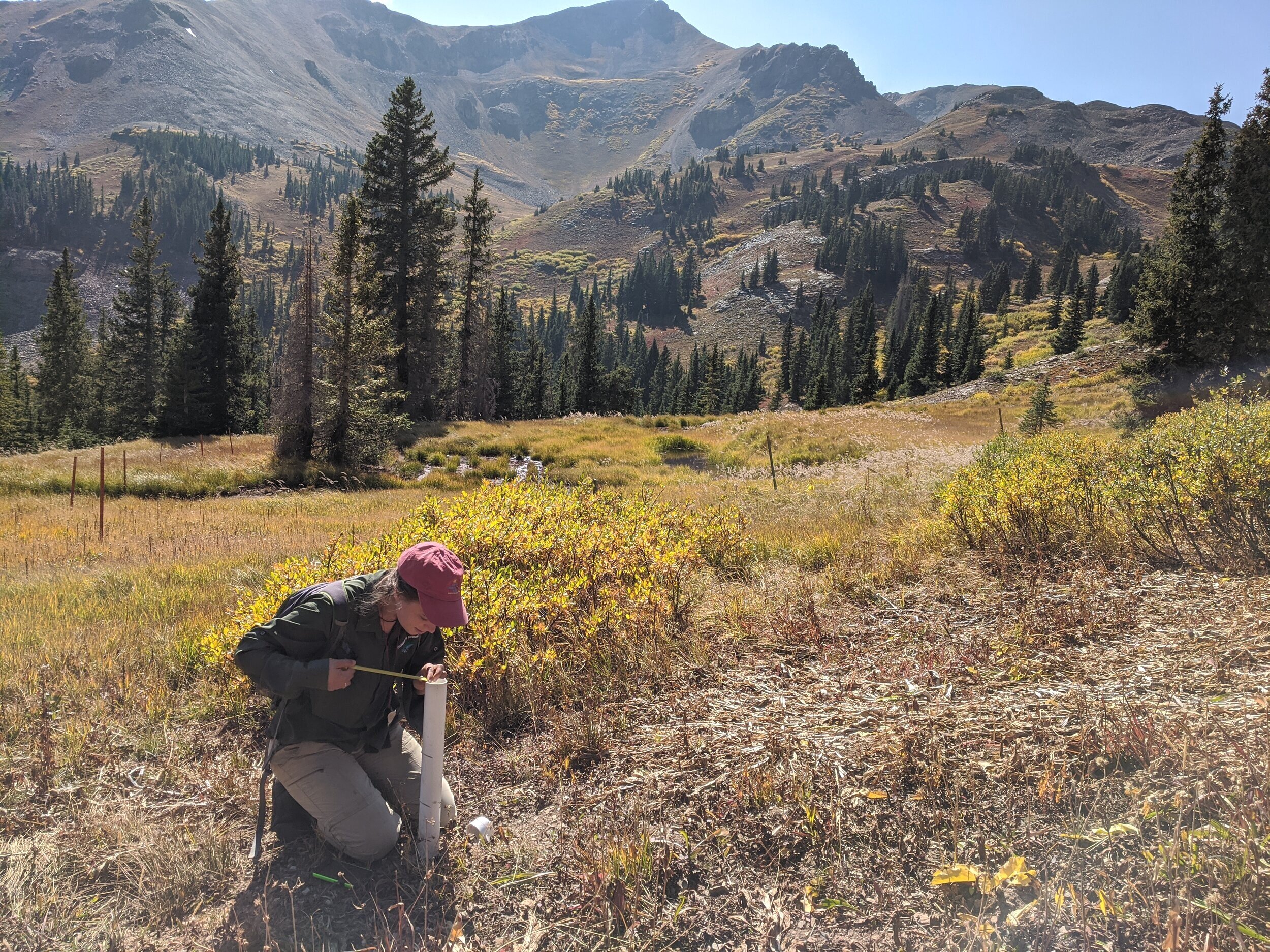
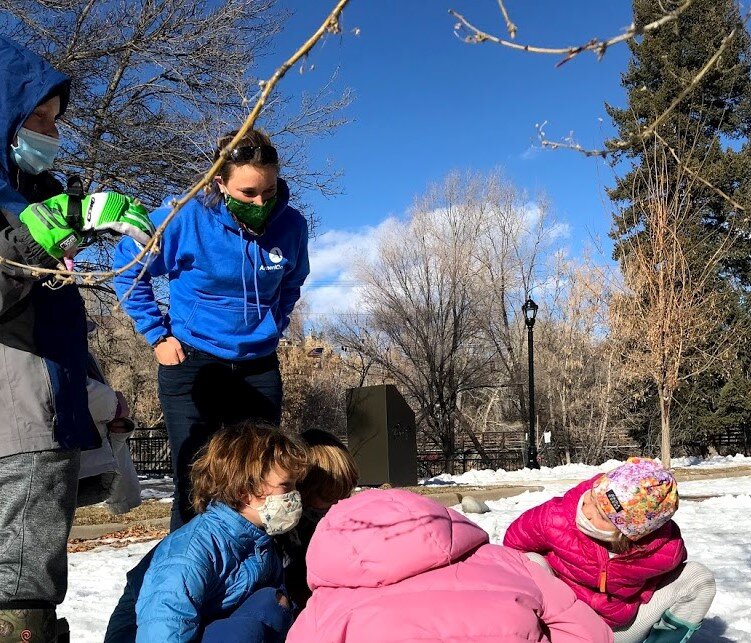
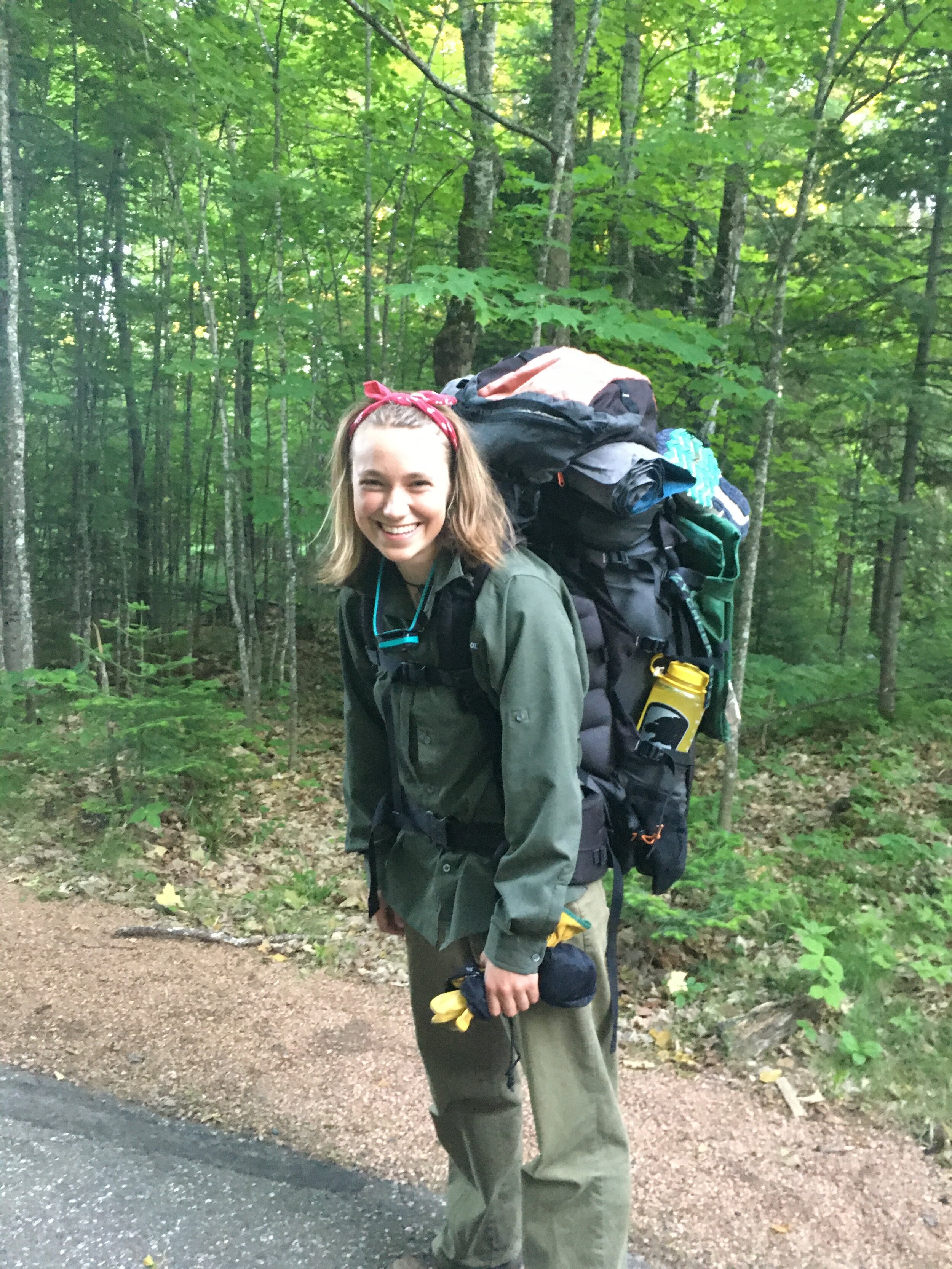
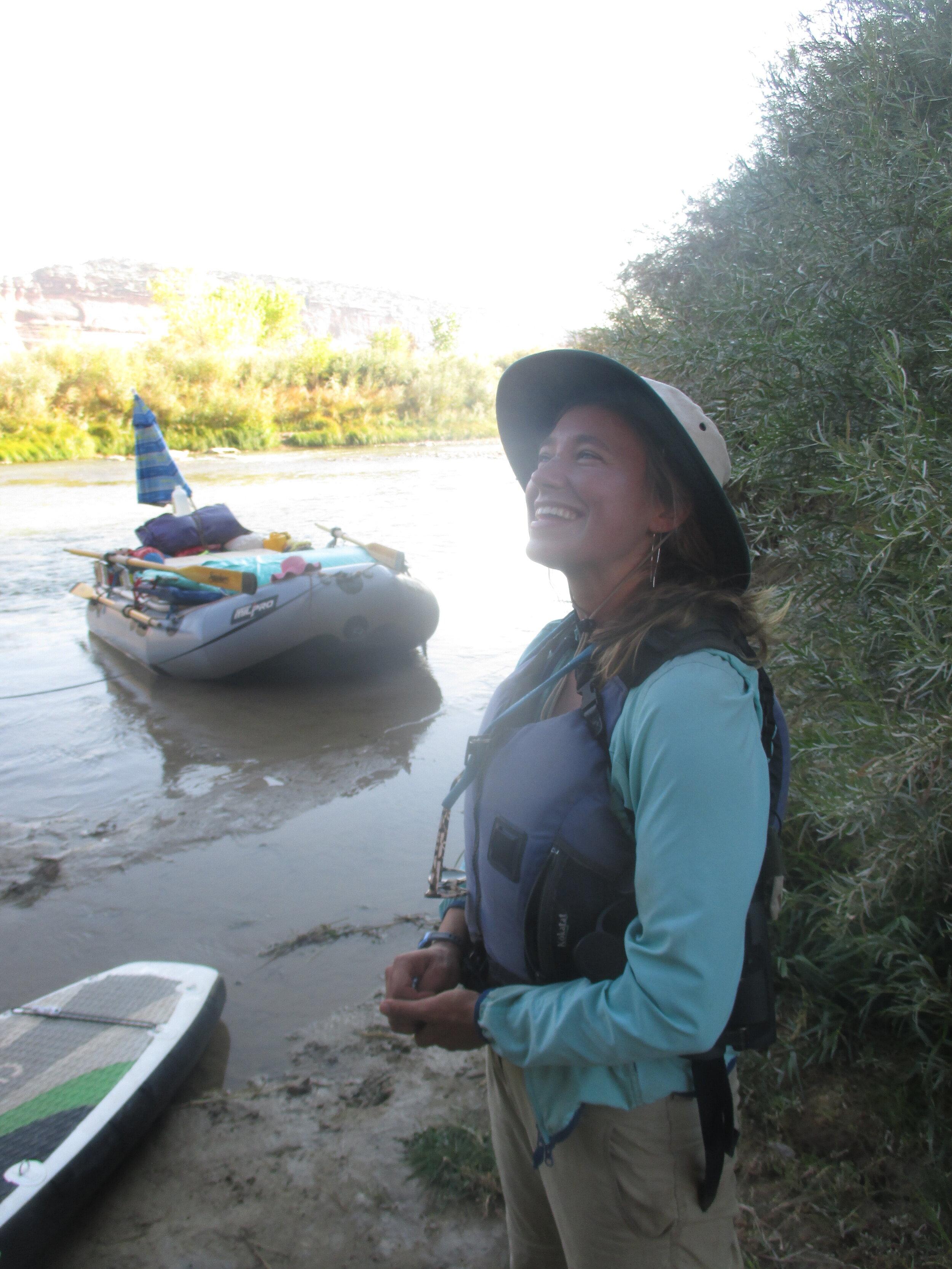
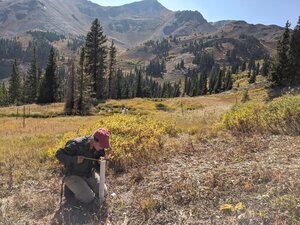
Today is International Day of Women and Girls in Science, and here at MSI we are fortunate to have an amazing range of talented and innovative women on our staff. Today we would like to celebrate our current Americorps Bridging Mountains Environmental Education Coordinator: Artemis Eyster. Artemis joined MSI last summer as an AmeriCorps service member through the Colorado Association for Environmental Education’s eeCorps program.
Artemis spent her childhood mornings exploring her ten-acre back yard, recording and drawing the fauna and flora she heard and saw. Originating from her connection to the natural world, she strives to help others connect with their natural surroundings. While studying Geosciences and Environmental studies at Princeton University, she pursued her love of nature through Princeton’s outdoor and experiential education program as a leader and leader trainer. In spring of 2020, as the Recreational Education Teaching Fellow at Conserve School, Artemis facilitated experiences for high school students to help them deepen their connection to the natural world. Now at MSI, she works on the education team to support public education programming, citizen science, and other outreach projects. We are incredibly lucky to have her on our team and have our fingers crossed she will stay with us once her Americorps position concludes.
To celebrate women in science, we asked Artemis a few questions about her passions for education and the natural world:
Q. Why is science important to you?
A. Science is important to me because it provides a systematic way to learn about our world.
Q. What is the best thing about working in the sciences?
A. The best thing about working in the sciences (specifically teaching science) is how it enriches my experience of the world around me. For example, I've always been familiar with the greenhouse effect, but until I tried to explain it to high school students, I never understood how it worked. The more I learn the more I realize the many miracles that are taking place every day around us---thank you greenhouse gases for vibrating asymmetrically to keep our planet habitable!
Q. What major change/s do you want to see for our environment in the next 5 years?
A. I look forward to seeing an increasing acceptance that humans and natural communities are interdependent. I believe that disrupting the narratives of human vs. nature is a prerequisite to sustainable communities. In addition, I also hope to see changes in who is making decisions about our environment. Communities of color are often most impacted by environmental issues and yet have traditionally been excluded from settler colonialist political systems.
Q. What was your favorite class in college and why?
A. One of my favorite classes in college was a history class about conservation in Africa. I loved this class because it made me confront and question my western perspectives on nature conservation.
Q. If you were a scientific instrument, which one would it be and why?
A. I would be an increment borer (tree corer) because I like to get to the core of a situation!
Artemis may be a borer, but certainly not a bore! Thank you Artemis for dedicating your career and energy into teaching and role modeling environmental ethics for the next generations. We are so grateful for your knowledge, kindness, and incredible bird-identification skills.



